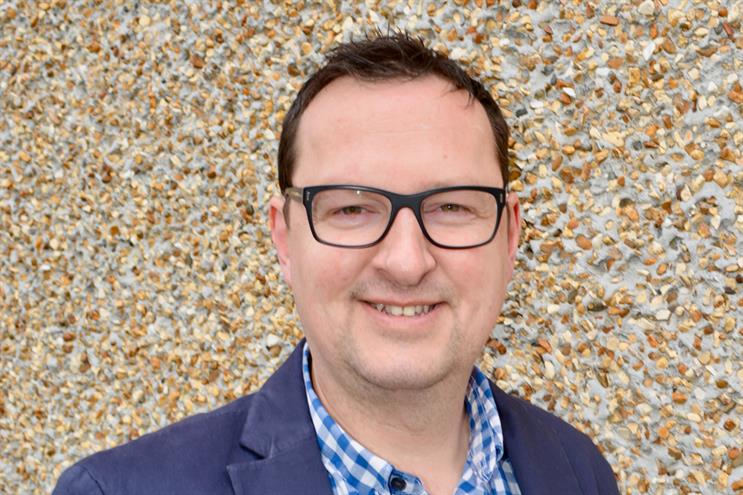
If you talk to any ad agency chief long enough you will often hear familiar gripes about clients – the ones that don’t pay on time, the ones that don’t pay at all, and the ones that expect agencies to work on pitches over holiday periods.
Enter Ken Robertson: Paddy Power’s former PR and marketer who last year left the bookmaker after 18 years to launch his own creative agency, The Tenth Man.
The bookmaker’s former PR man spent four years as "head of mischief", where he was the driving force behind the brand’s tactical stunts, such as mocking Russian athletes during the 2016 Olympic Games or trolling MPs at general election time.
Now that The Tenth Man has launched, Robertson is determined that his agency will "walk the walk" when it comes to fostering good client relationships and insists he is not seeking to conquer adland in the style of barely 10-years-old Adam & Eve/DDB.
"We have to be super-choosy about who works with us – we have no ‘contact us’ on our website. Generally we want to work with brands who will be looking to make a difference. We don’t get involved in competitive pitches, we’re not the type of agency that cares about awards or spends £100 on quinoa salads when a client comes round. We don’t aspire to be the big boys, we just want to do powerful work for clients."
Robertson says "six clients" is an ideal number, and it sounds like The Tenth Man is already on the way to achieving that in its first year having launched in February.
The Tenth Man’s founding client is The Restaurant Group, with work coming out later this month to revitalise the Frankie & Benny’s brand across above-the-line and social media. Robertson says he will be able to announce another five clients in the coming months.
The agency focuses on two service offerings: content used as part of creative advertising, social media brand activations, and also consultancy work with brands to help them define their brand and social media strategy.
For Roberston, The Tenth Man is all about giving brands an alternative to conventional big agency thinking. Borrowed from the world of military strategy, The Tenth Man concept safeguards against the dangers of groupthink by developing an alternative point of view.
"I was trying to find the right name for the agency to capture that kind of disruptive approach that Paddy Power brought to the betting industry. I was reading this book that explained how Israel were blindsided by an invasion in the Golan Heights; they didn’t expect it so they created a tactic called The Tenth Man to counteract groupthink…. It was a lightbulb moment for me and luckily the website URL was available."
When pressed on which agencies in adland he would want The Tenth Man to emulate, Roberton is drawn to Lucky Generals, which itself had Paddy Power as a founding client.
"I’ve been on a journey with that agency and have huge respect for Helen Calcraft; she’s been very generous with her time since I left Paddy Power. Danny Brooke-Taylor is the best creative director in London at the moment and Andy Nairn is as good a planner as it gets. I really love their approach to advertising; they’re not the biggest but the work they produce is excellent."
However, while Lucky Generals would go on to become a sister agency to TBWA\London as part of its majority stake sale to Omnicom, Robertson is sceptical that The Tenth Man will tread the same path because the marketing landscape is "evolving so quickly".
"Recently I met a company in Shoreditch set up by former YouTubers who are killing it in the social media influencer space. They’re so far ahead of any of the big agencies in the level of sophistication for how you can use influence as a marketing tool. I don’t think there are any easy answers to how to address shifting client needs but I’m constantly networking and learning as I go – I’m in London two or three days a week and spend all my time working with clients."
This flip-side of flexibility is "never having a massive headcount", Robertson believes, while his plan is to "constantly build out partnership collaboration from like-minded agencies".
This seems strikingly reminiscent of last year’s most anticipated London agency launch, Uncommon, which aspires to do things differently by using flexible staff arrangements through a pool of creative freelancers.
Robertson is very optimistic about the creative pool of freelancers in Dublin as well as London, but admits he is seeking top senior talent to attract them. The agency now has 14 full-time staff members in the Dublin office, with creative led by executive creative director Richard Seabrooke. A senior planner is close to signing a contract too, and would potentially be based in a new London office.
The business is 100%-owned by Robertson, who said he has had several investment offers and is also open to offer equity in the business to key members of staff. "However I don’t want to take money for the sake of it, but if someone can put in a compelling case then I’m open to it," he adds.
So, while this Dublin-based boutique may not be about to revolutionise the agency-client relationship any time soon, one suspects a fair amount of mischief will ensue.


